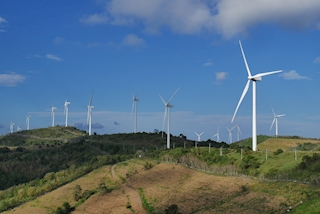A place-based approach to climate policy
Nov 12, 2021 | 8:00 AM - 9:30 AM
Nov 12, 2021 | 8:00 AM - 9:30 AM
Description
What’s the issue?
There is a strong case for enhancing climate policy with a place-based perspective. Per capita emissions vary more within than across countries. Regions therefore require different climate actions. The transition can only be inclusive if place-based. Harnessing the co-benefits of climate policy improves the political economy of climate action, but requires local action.
Due to the transition to climate neutrality, some manufacturing sectors will undergo particularly large transformations and their activities are often regionally concentrated. Industrial transitions to climate neutrality may therefore affect employment differently across regions. These industrial transformations will alter the skillsets as well as the production and infrastructure assets. Understanding regional variation can ensure that the transition is just and does not aggravate existing regional inequalities.
■ About the event
The event will consist of a webinar with two sessions. For each session, OECD staff will present their work and policy recommendations, followed by a panel discussion between policymakers and experts.
■ Language
The event will be held in English.
09:00-09:05 CET
Opening remarks
Rüdiger Ahrend, Head of Division, Economic Analysis, Data and Statistics, OECD Centre for Entrepreneurship, SMEs, Regions, and Cities
09:05-09:25 CET
OECD staff will present key findings from the OECD Regional Outlook 2021, making a case for place-based action on climate change.
Andrés Fuentes Hutfilter, Head of Unit, Regional Outlook and Environmental Economics, OECD Centre for Entrepreneurship, SMEs, Regions, and Cities, Jolien Noels, Junior Policy Analyst, Regional Outlook and Environmental Economics, OECD Centre for Entrepreneurship, SMEs, Regions, and Cities
09:25-09:50 CET
Panel Discussion and Q&A with policymakers and experts touching on topics from the first presentation. The discussion will provide insights for integrating the climate challenge into regional policy making, drawing on regional experiences from within OECD countries, integrating climate policy into urban and rural development, leaving no region behind.
Moderator: Varinia Michalun, Senior Project Manager Regional Development and Multi-Level Governance Division, OECD Centre for Entrepreneurship, SMEs, Regions, and Cities
Speakers: Nehmat Kaur Head of Global Government Relations, Under2 Coalition, Ralph Chapman, Professor, School of Geography, Environment and Earth Sciences, Victoria University of Wellington, Andy Gouldson Professor of Environmental Policy, University of Leeds, UK, Chair of the Leeds Climate Commission, Director of the Yorkshire and Humber Climate Commission, Andrés Fuentes Hutfilter Head of Unit, Regional Outlook and Environmental Economics, OECD Centre for Entrepreneurship, SMEs, Regions, and Cities.
09:50-10:00 CET
OECD staff will present ongoing work to identify EU regions most concerned by transformations to move difficult-to-decarbonise manufacturing sectors to climate neutrality, including the spatial distribution of employment, emissions and place-based consequences for energy systems and infrastructure.
Speakers: Andrés Fuentes Hutfilter, Head of Unit, Regional Outlook and Environmental Economics, OECD Centre for Entrepreneurship, SMEs, Regions, and Cities, Jolien Noels, Junior Policy Analyst, Regional Outlook and Environmental Economics, OECD Centre for Entrepreneurship, SMEs, Regions, and Cities.
10:00-10:25 CET
Panel discussion: session 2
Panel discussion and Q&A with policymakers and experts touching on topics from the second presentation. The discussion will aim at shedding light on key driving forces and how these place-based impacts can be analysed to support a just and regionally balanced transition.
Moderator: Varinia Michalun, Senior Project Manager Regional Development and Multi-Level Governance Division, OECD Centre for Entrepreneurship, SMEs, Regions, and Cities
Speakers: Sander Haeperts, Coordinator Just Transition Fund, Directorate General for Regional Policy, Sustainable growth team, European Commission, Catherine Saget, Chief of Unit with the Research Department of the International Labour Office (ILO), Andrés Fuentes Hutfilter, Head of Unit, Regional Outlook and Environmental Economics, OECD Centre for Entrepreneurship, SMEs, Regions, and Cities.
10:25-10:30 CET
Closing remarks
Speakers: Varinia Michalun, Senior Project Manager Regional Development and Multi-Level Governance Division, OECD Centre for Entrepreneurship, SMEs, Regions, and Cities





